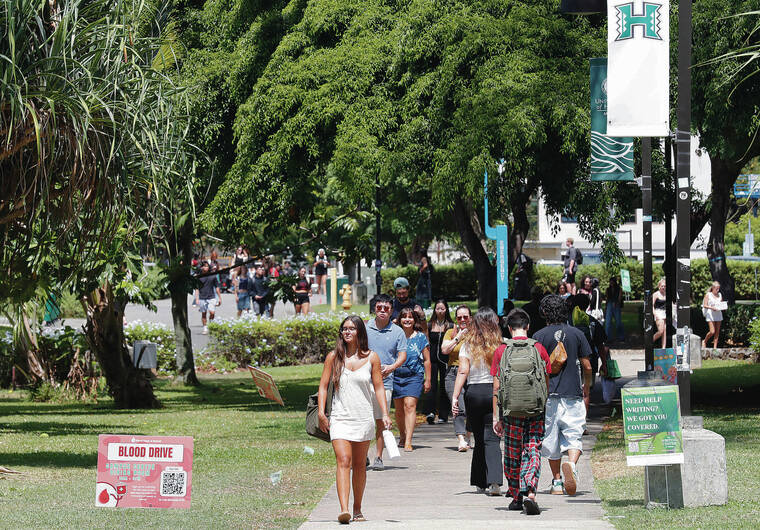Enrollment at the University of Hawaii has reached a record high, with 51,400 students registered for the current academic year, the highest number in eight years. This surge in enrollment reflects a growing desire among students to pursue higher education. However, the rising cost of tuition raises significant concerns about the future prospects for these graduates.
In the past, tuition at the University of Hawaii was approximately $85 per semester. Today, that figure has skyrocketed to $11,520 per year. While many students successfully transition into graduate or professional programs, others face a challenging job market. The concern is that future graduates will not only contend with traditional employment competition but also with the increasing role of artificial intelligence in the workforce.
The primary industry in Hawaii remains tourism, which does not typically require advanced degrees for most positions. This poses a dilemma for graduates who may find themselves burdened with student debt and lacking viable employment opportunities within the state. Gerald Ching, a concerned resident from Waialae Iki, expressed his disappointment over the potential loss of talent. He emphasized the irony of educating the state’s brightest students only to see them leave for better opportunities elsewhere.
Ching’s letter, published in the Honolulu Star-Advertiser on October 5, highlights the importance of developing local industries that can support higher education graduates. He advocates for initiatives that encourage young professionals to remain in Hawaii, suggesting that without such support, the state risks losing its most talented individuals.
The situation in Hawaii serves as a microcosm of a larger trend observed in many regions where educational institutions produce highly qualified graduates who struggle to find suitable employment within their home states. The challenge lies not only in attracting students to pursue education but also in ensuring that the local economy can provide meaningful opportunities upon their graduation.
As the University of Hawaii continues to expand its enrollment, the focus may need to shift towards creating sustainable economic growth that can accommodate the influx of educated individuals. Without proactive measures, the state could face a significant brain drain, negatively impacting its long-term economic health and cultural vitality.






































































